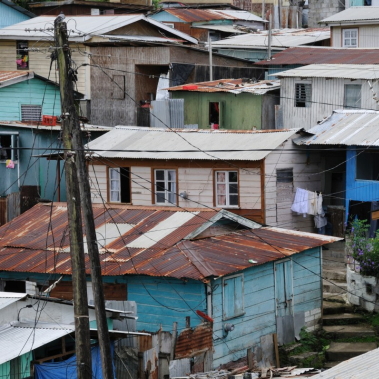Oliver Wyman assembled a unique group of experts representing diverse stakeholders to discuss Ebola in conjunction with the World Economic Forum annual meeting in Davos, Switzerland. Our participants had experience on the ground in Africa, a sophisticated understanding of public health systems and global organizations, and an appreciation of the need to balance the needs of the people at the center of a desperate fight with those of nations who supply resources. Our attendees recommended we share key messages with a larger audience.
Participants
Moderator
Suresh Kumar – Partner, Oliver Wyman
Panelists
Dr. Seth Berkley – Chief Executive Officer, Gavi Alliance
Dr. David Nabarro – Special Envoy on Ebola, United Nations
Additional Participants
Winnie Byanyima – Executive Director, Oxfam International
Elhadj As Sy – Secretary-General, International Federation of Red Cross and Red Crescent Societies
Dr. Hans Rosling – Leader in Liberian response effort
Dr. Paul Stoffels – Chief Scientific Officer, Johnson & Johnson
In Focus
A Provocative Architecture for Change
Suresh Kumar, a partner in the Health & Life Sciences practice group of Oliver Wyman and former US Assistant Secretary of Commerce, served as a lead organizer and moderator of the panel. The event drew more than 60 attendees from around the world, including Oxfam’s Winnie Byanyima and Elhadj As Sy, Secretary-General of the International Federation of Red Cross and Red Crescent Societies. Below, the Oliver Wyman team in Davos shares their top takeaways:
Short-needs and long-term needs
Hans Rosling was eloquent in describing the end-game in fighting Ebola in Liberia. There, the effort now is to track down every single case and all their connections, so that no new infection comes as a surprise. But it’s not easy to find people with the appropriate skills. “We need about 1,000 or so epidemiologists, and about 80 or so who are ready to become real experts on Ebola, and who are preferably from the African continent and can embrace its social and cultural mores,” he told us. “But they are never available. They are always committed to some other crisis.” Shutting down the current epidemic is only part of the job. Said David Nabarro: “We will need another $4 billion before we are finished: to stop Ebola and rebuild shattered healthcare in affected communities.” Seth Berkley agreed: “We need to recognize infectious diseases are here to stay. We need steady investment year on year, not just after an outbreak.”
The importance of local ownership
There was general agreement that the core solution to health crises like Ebola had to be rooted in local health infrastructure, not just airlift medicine. As one of our guests, Elhadj As Sy, Secretary-General of the International Federation Red Cross and Red Crescent Societies, put it, “Ebola can only be defeated in Liberia, Sierra Leone, and Guinea, not in Europe or the U.S.” There’s good reason for that. Explained Nabarro: “The contribution of healthcare to solving crises like this is no more than 30 percent,” he said. “What is critical are on-the-ground logisticians and top-class coordinators who can work with humility within communities.” And the attractions of the developed world have done much to deprive Africa of those on-the-ground resources, said Oxfam’s Winnie Byanyima: “The brain drain of healthcare workers from Africa has left already poorly resourced local healthcare denuded of trained people.”
The role of the private sector
Both on the panel and in the room there was a clear sense by commercial organizations of their social obligation in times of crisis like Ebola. Dr. Paul Stoffels explained, “The J&J Board agreed to release $200MM for vaccine development in a single day, even though they could not see how they would get the money back.” And it’s not just the pharmaceutical companies willing to jump in to secure solutions. Stoffels added, “For Ebola vaccine development regulators would give an answer overnight, even at weekends, when normally it might take 6 weeks or more.”
Coordinating the effort
The panelists agreed that supra-national organizations such as the World Health Organization need reinforcement, but they were wary of launching new bodies. “If the WHO is only funded for about 15 percent of its needs, it cannot be sensible to blame it for limitations in its ability to respond,” said Rosling. Besides, he argued, “the real need for coordination is at the operational level on the ground.” And Nabarro pointed out that coordination is only an issue when there are resources available to coordinate: “Whilst there is a real need for coordination with so many state actors and especially NGOs on the ground, this is a good problem to have. In July there was not enough resource to require coordination.” For Berkley, one neglected area for coordination was science: “We need a NATO type body bringing coherence to the global scientific effort.”
An epidemic like Ebola is not an African problem—it is a global problem, a human problem, the solution to which lies in building local, regional, and global collaborations and shared responsibility.Suresh Kumar, Partner, Head of Public Sector North America Former US Assistant Secretary of Commerce






